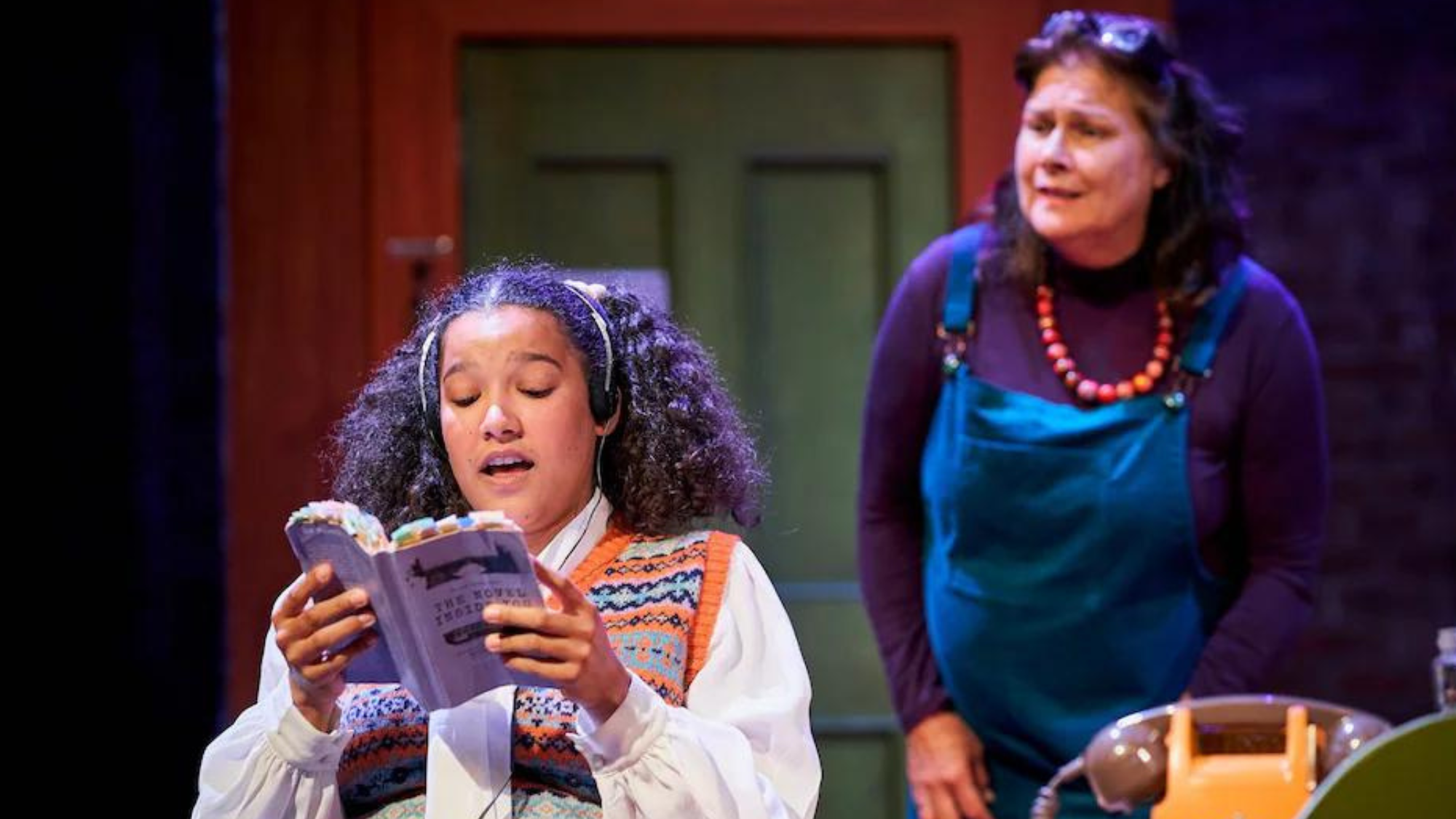The Brenda Line: a 'confident and adventurous' debut from Harry Mould
'Sweet' and funny play about the Samaritans volunteers tasked with talking to 'telephone masturbators' in the 1970s

A free daily email with the biggest news stories of the day – and the best features from TheWeek.com
You are now subscribed
Your newsletter sign-up was successful
Harry Mould's "entertaining" debut play, "The Brenda Line", is inspired by a "curious historical detail", said Mark Fisher in The Guardian.
Between 1972 and 1987, the Samaritans set up a service run by female volunteers ("Brendas") to answer obscene helpline calls from "telephone masturbators". The playwright's mother saw the service at first hand during her time volunteering for the charity in north Wales as a young woman – and it's her experience that sparked the idea for Mould's "sparky two-hander".
Set in a small Scottish town at a Samaritans two-desk call centre, the action follows long-serving volunteer Anne (Fiona Bruce) and the youngest, newest member of the team, Karen (Charlotte Grayson), who has recently arrived from London and "fizzes with feminist zeal".
The Week
Escape your echo chamber. Get the facts behind the news, plus analysis from multiple perspectives.

Sign up for The Week's Free Newsletters
From our morning news briefing to a weekly Good News Newsletter, get the best of The Week delivered directly to your inbox.
From our morning news briefing to a weekly Good News Newsletter, get the best of The Week delivered directly to your inbox.
When regular caller Daniel fails to phone at his usual time, Anne becomes increasingly concerned for his welfare; Karen dismisses him as a "punctual pervert" and decries the older volunteer's "playing an active role in the subjugation of women".
From sex and danger to exploitation and "what constitutes a cry for help", Mould expertly weaves together a series of interesting questions. The Edinburgh-based playwright acknowledges the "absurdity" of the Brenda Line, without at any point "diminishing" the role of the charity.
Bruce and Grayson are "tremendously engaging" in the starring roles, said Mark Brown in The Telegraph, and Natalie Fern's "simple yet effective" set is "assiduously evocative" of the late 1970s with its colourful rotary-dial phones and desk lamps.
Mould's script "sparks with laugh-out-loud humour that belies the piece's subject matter", and the disagreement between the two women is portrayed in a way that is both "engrossing and unerringly plausible".
A free daily email with the biggest news stories of the day – and the best features from TheWeek.com
Perhaps a "gentler" drama than you might expect given the subject matter, the production by director Ben Occhipinti is "nicely paced and balanced".
But at just 80 minutes, "The Brenda Line" is not long enough to justify the interval, said David Pollock in The Stage, and despite its short running time, some of the sections feel "overlong or superfluous".
Still, it's a "confident and adventurous debut" from Mould that "warmly and amusingly touches on alienation" while avoiding "moral judgement".
Despite its "sexual frankness", added Mark Fisher in The Guardian, "The Brenda Line" is at its heart a "sweet comedy about acceptance and making all of us feel human".
"The Brenda Line" is at Pitlochry Festival Theatre until 18 September, then at Traverse, Edinburgh, 13–16 November
Irenie Forshaw is the features editor at The Week, covering arts, culture and travel. She began her career in journalism at Leeds University, where she wrote for the student newspaper, The Gryphon, before working at The Guardian and The New Statesman Group. Irenie then became a senior writer at Elite Traveler, where she oversaw The Experts column.
-
 What to expect financially before getting a pet
What to expect financially before getting a petthe explainer Be responsible for both your furry friend and your wallet
-
 Pentagon spokesperson forced out as DHS’s resigns
Pentagon spokesperson forced out as DHS’s resignsSpeed Read Senior military adviser Col. David Butler was fired by Pete Hegseth and Homeland Security spokesperson Tricia McLaughlin is resigning
-
 Colbert, CBS spar over FCC and Talarico interview
Colbert, CBS spar over FCC and Talarico interviewSpeed Read The late night host said CBS pulled his interview with Democratic Texas state representative James Talarico over new FCC rules about political interviews
-
 The 8 best TV shows of the 1960s
The 8 best TV shows of the 1960sThe standout shows of this decade take viewers from outer space to the Wild West
-
 The year’s ‘it’ vegetable is a versatile, economical wonder
The year’s ‘it’ vegetable is a versatile, economical wonderthe week recommends How to think about thinking about cabbage
-
 The biggest box office flops of the 21st century
The biggest box office flops of the 21st centuryin depth Unnecessary remakes and turgid, expensive CGI-fests highlight this list of these most notorious box-office losers
-
 Mail incoming: 9 well-made products to jazz up your letters and cards
Mail incoming: 9 well-made products to jazz up your letters and cardsThe Week Recommends Get the write stuff
-
 The 8 best superhero movies of all time
The 8 best superhero movies of all timethe week recommends A genre that now dominates studio filmmaking once struggled to get anyone to take it seriously
-
 One great cookbook: Joshua McFadden’s ‘Six Seasons of Pasta’
One great cookbook: Joshua McFadden’s ‘Six Seasons of Pasta’the week recommends The pasta you know and love. But ever so much better.
-
 How to navigate dating apps to find ‘the one’
How to navigate dating apps to find ‘the one’The Week Recommends Put an end to endless swiping and make real romantic connections
-
 February TV brings the debut of an adult animated series, the latest batch of ‘Bridgerton’ and the return of an aughts sitcom
February TV brings the debut of an adult animated series, the latest batch of ‘Bridgerton’ and the return of an aughts sitcomthe week recommends An animated lawyers show, a post-apocalyptic family reunion and a revival of a hospital comedy classic